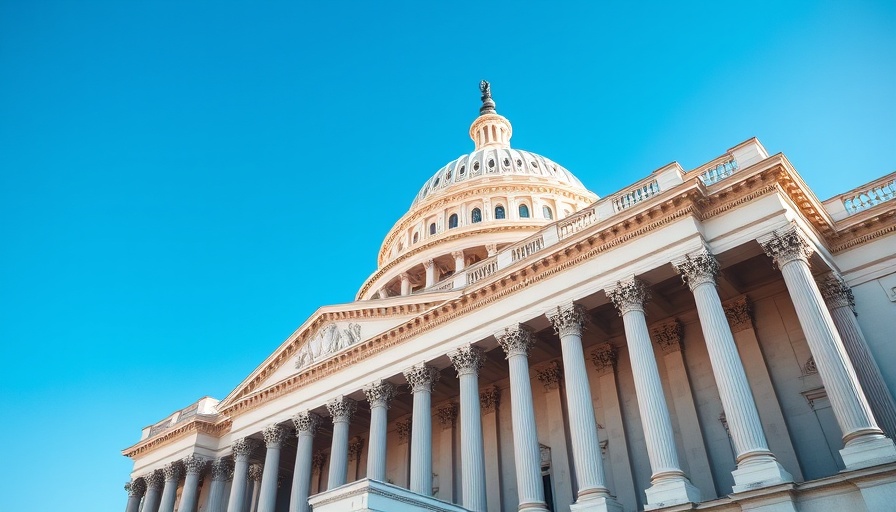
How Tariff Revenue Could Impact U.S. Deficits
According to recent estimates, tariff revenue could dramatically influence the United States' fiscal landscape. The fiscal watchdog predicts that over the next decade, tariff revenue might cut U.S. deficits by up to $4 trillion. This projection raises questions about how tariffs, traditionally viewed as a possible burden on consumers, might instead serve as a fiscal tool to alleviate national debt. For franchisors, understanding this shift is critical, as it may lead to both opportunities and challenges in economic environments that heavily rely on imported goods.
The Role of Tariffs in Business Operations
For franchisors, the implications of altered tariff structures extend well beyond just numbers on a balance sheet. Tariffs can affect the cost of supplies or equipment critical to operational efficiency, influencing decisions about sourcing and supply chain management. With the potential for reduced deficits due to tariffs, companies may witness a stabilization in prices which could allow for better budgeting and forecasting within franchises. It’s an opportunity for franchisors to consider diversifying their suppliers or optimizing their logistics.
Franchisee Performance Amidst Economic Changes
As the economic landscape shifts, franchisors need to ensure that their franchisees are equipped to adapt. A reduction in deficits through tariffs could lead to altered consumer spending habits, which might either hinder or support franchisee performance. Having a clear strategy that aligns franchisee interests with national economic trends can offer Franchise brands a cohesive strategy, enhancing brand consistency across locations.
Real-World Examples of Operational Adaptation
Several franchises have thrived by adapting to changing tariff policies in recent years. Take, for example, the restaurant franchise sector. When tariffs on steel influenced food delivery or storage prices, some franchises pivoted to local sourcing techniques, reducing reliance on imports. This not only mitigated potential increases in costs but also appealed to a consumer base that increasingly values local products.
Best Practices for Franchise Growth Strategies
To effectively navigate the evolving tariff landscape, franchisors should consider implementing several best practices. First, annual reviews of supply chains can highlight areas for improvement and enable franchisors to remain agile. Second, leveraging technology for tracking and forecasting can further solidify operational excellence. Lastly, continuous education on economic policies can empower franchisees to make informed decisions for their businesses, ensuring growth and consistency.
Looking Ahead: Future Trends and Predictions
As the debate over tariffs and their economic implications continues, franchisors should keep an eye on legislative changes. Understanding potential policy shifts will be vital for anticipating how they might affect pricing strategies and overall profitability. With a proactive approach, franchisors can not only weather the storm of economic fluctuation but also harness it as a vehicle for growth.
For franchisors looking to optimize their operations amidst these changing fiscal landscapes, it is crucial to develop flexible strategies that can adapt to new regulations. By staying informed and responsive, you can enhance your brand's resilience and empower your franchisees to succeed.
 Add Row
Add Row  Add
Add 




Write A Comment